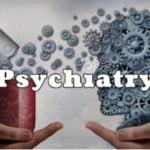No matter our goals, dedication, or lifestyle, nobody is immune to food cravings. Perhaps you gravitate towards comfort food after a stressful day, or you stop by a fast food restaurant when you’re in a quick pinch. It might be the smell of freshly baked cookies or an inviting bag of sliced cheese in the fridge. Regardless of your food of choice, cravings can feel uncontrollable, frustrating, and overwhelming. However, awareness and control of these food cravings can be achieved through determining their cause.
Finding the Cause
Rather than immediately reaching for that brownie in the break room, it is important to first figure out why that craving is there. Food is oftentimes connected to emotions - your mother’s lasagna that she makes every Christmas, a certain flavor of ice cream after a difficult breakup, or a specific type of ethnic cuisine after a fun vacation. An easy and effective tool to use is a “food-mood” journal, in which you record notes about what you were craving, what time of day it was, what you were feeling, and what you did about the craving. After a week or two, you will soon be able to recognize a behavioral pattern that may be associated with or trigger your craving.
Six Common Causes
1. Stress or anxiety
Chronic stress leads to increased levels of the hormone cortisol. As a result, this increases appetite, particularly for sugary carbs. Feelings of sadness may lead to the compensatory behavior of eating pleasurable foods that initiates the release of dopamine, the feel-good chemical in our brains. As our moods improve, we then associate these good feelings with that particular food.
Ask us about how we can determine and manage your stress levels through our various stress tests
2. Being tired
Our bodies need sleep in order to replenish our energy. The other way we can replenish our energy is through intake of calories that get transformed into energy. Lack of sleep or inadequate sleep makes our body crave other forms of energy through food. Insufficient sleep affects cortisol levels, which further sends our body into overdrive on the hunt for food.
3. Low blood sugar
Whether in the form of sleep or food, our bodies need enough energy to sustain our daily activities. If you don’t eat enough throughout the day to maintain adequate energy, then your blood sugar can drop to a level that signals to your body that you need food - thus, these food cravings are then generated. Low blood sugar (formally referred to as hypoglycemia) often triggers cravings for sugary foods because it increases blood sugar (and therefore energy) the quickest.
4. Hormonal imbalance
As previously mentioned, cortisol is one hormone that strongly affects hunger. Many other hormones also play a role in feelings of hunger and satiety. This is especially apparent in women who are menstruating, as cycling hormones can influence cravings and hunger.
Ask us about how we can determine and manage your levels of hormones through our various hormonal tests
5. Dehydration
Although related, hunger and thirst are oftentimes confused. An easy way to check is to drink a glass of water and wait 20 minutes to see if the craving goes away.
6. Nutrient imbalance
In addition to energy, another crucial aspect to our food is the essential nutrients necessary for functioning. If your body isn’t receiving enough protein, fiber, vitamins, or other nutrients, your body can signal cravings because it needs something it lacks.
Ask us about our various vitamin/mineral supplements we offer.
Ask us about how we can determine and manage your nutrient levels through our various nutrient tests.








